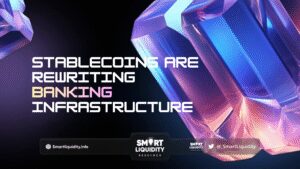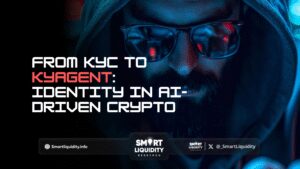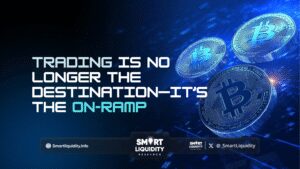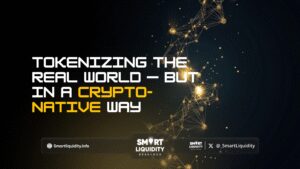Navigating the Solana Ecosystem: A Comprehensive Guide for Investors


Solana is a blockchain platform that offers high-speed and low-cost transactions for decentralized applications (dApps). This article delves into Solana’s unique features, such as its Proof of History (PoH) and Tower BFT consensus mechanisms, and explores the various dApps available on the platform, including finance, gaming, and NFTs.
In recent years, Solana has emerged as a prominent blockchain platform that offers a high-speed and scalable infrastructure for decentralized applications (dApps). The platform’s ecosystem is rapidly growing, and it has already attracted the attention of investors looking to capitalize on its potential. If you’re an investor looking to explore the Solana ecosystem, this comprehensive guide will provide you with everything you need to know.
Understanding Solana
Solana is a blockchain platform that was developed by Solana Labs, a company based in San Francisco. The platform is designed to provide high-speed transaction processing and low-cost fees. It uses a unique consensus mechanism called Proof of History (PoH), which allows the network to process over 65,000 transactions per second. Solana’s native token is SOL, which is used for transaction fees, staking, and governance.
One of the main features that sets Solana apart from other blockchain platforms is its high throughput. This is achieved through a combination of several technologies, including PoH, which is used to verify the order of transactions, and Tower BFT, which is used for consensus. The platform also uses a system called Gulf Stream, which allows nodes to communicate with each other more efficiently, and the Solana Runtime, which enables smart contract execution.
Investing in Solana
If you’re interested in investing in Solana, the first step is to acquire SOL tokens. You can buy SOL tokens from various cryptocurrency exchanges such as Binance, Coinbase, and Kraken. As with any investment, it’s essential to conduct thorough research before investing. It’s also crucial to consider the market trends and volatility of the cryptocurrency market.
One of the advantages of investing in SOL is the potential for significant returns. The price of SOL has increased dramatically since its launch, and the token has outperformed many other cryptocurrencies in terms of growth. Additionally, the demand for Solana’s technology is expected to increase as more developers and companies adopt the platform.
Decentralized Applications on Solana
The Solana ecosystem offers a wide range of dApps that cater to various sectors, including finance, gaming, and NFTs. Some of the most popular dApps on the Solana network include:
- Serum: A decentralized exchange that offers high-speed trading and low fees.
- Raydium: A liquidity provider and automated market maker that facilitates token swaps.
- Mango Markets: A decentralized trading platform that supports margin trading and spot trading.
- SolFarm: A yield farming platform that allows users to earn rewards by staking their SOL tokens.
One of the benefits of using dApps on Solana is the speed and low fees. Solana’s high throughput allows dApps to process transactions quickly and efficiently, which is critical for applications such as decentralized exchanges that require real-time trading. Additionally, the low fees on the Solana network make it an attractive option for users looking to save on transaction costs.
Staking on Solana
Staking is the process of holding a cryptocurrency in a wallet to support the network’s operations and earn rewards. Solana allows users to stake their SOL tokens to participate in the network’s consensus mechanism and earn staking rewards. To stake SOL, you need to delegate your tokens to a validator node that will validate transactions on the network. Some popular validators include Certus One, Chorus One, and Solana Foundation.
Staking on Solana offers several benefits, including the potential for passive income. Users who stake their SOL tokens can earn staking rewards, which are distributed to validators who participate in the network’s consensus mechanism. Additionally, staking SOL helps to secure the network and ensures its reliability and stability.
Governance on Solana
As a Solana token holder, you can participate in the platform’s governance process by voting on proposals that impact the network’s development and direction. Solana’s governance is handled through on-chain governance, which means that token holders can vote directly on proposals using their SOL tokens. Some of the areas where Solana’s governance can impact include network upgrades, fee adjustments, and new token listings.
Participating in Solana’s governance offers several benefits, including the ability to shape the future of the platform. As a token holder, you have a say in how the network evolves, and your vote can influence the decisions made by the community. Additionally, governance participation can earn rewards in the form of governance tokens or additional staking rewards.
Conclusion
In conclusion, the Solana ecosystem offers a high-speed and scalable infrastructure for decentralized applications, making it an attractive option for developers and investors alike. The platform’s unique consensus mechanism and advanced technologies enable it to process transactions quickly and efficiently while maintaining low fees. As an investor, you can buy SOL tokens, participate in staking, and engage in governance to capitalize on the platform’s potential.
When investing in Solana, it’s important to conduct thorough research and consider market trends and volatility. Additionally, exploring the various dApps on the Solana network can provide insight into the platform’s potential and how it can be used to support various sectors. With its growing ecosystem and increasing adoption, Solana is poised to become a significant player in the blockchain space.




